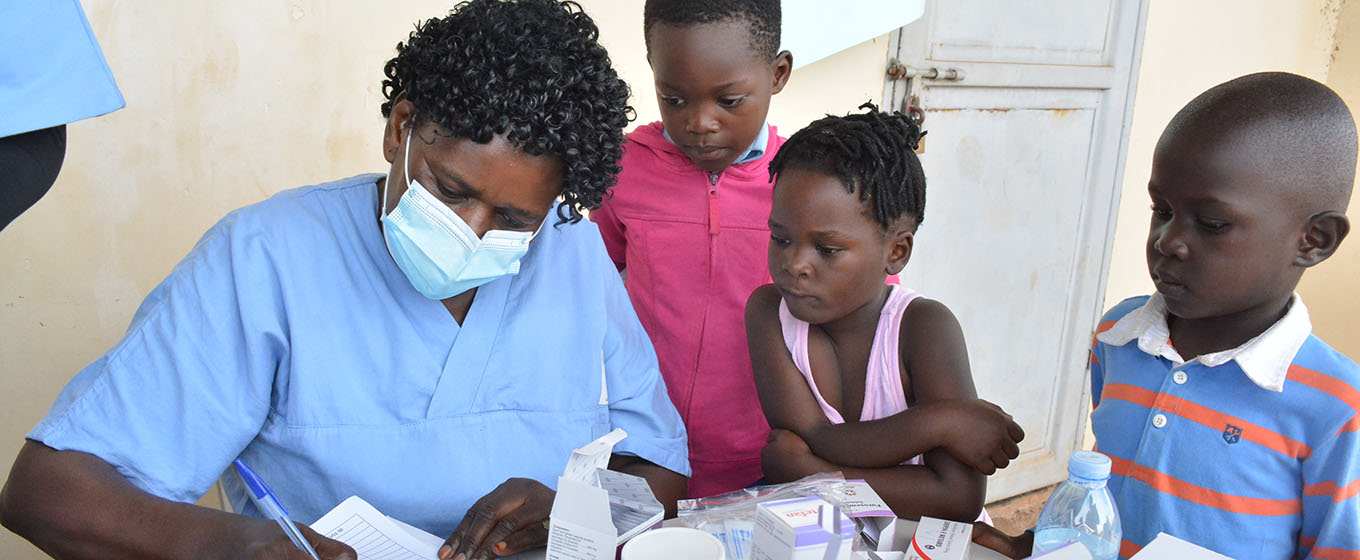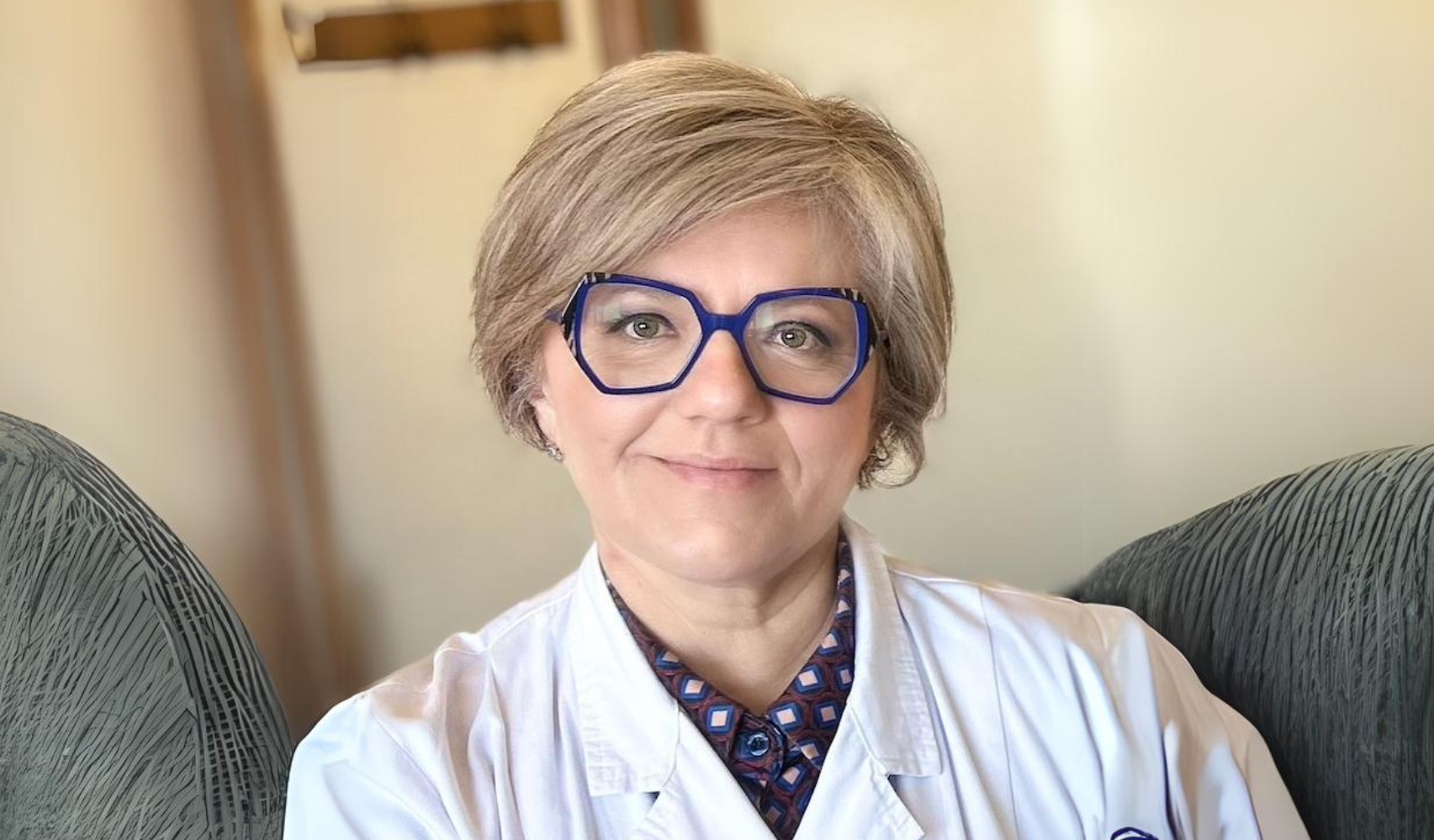Empowering Communities: a New Frontier in Extrapulmonary Tuberculosis Prevention

by Adriana Maria Vargas Bermudez
In the landscape of global health challenges, extrapulmonary tuberculosis (TB) presents a significant problem, particularly in resource-constrained regions. It's a rapidly spreading disease that can prove fatal without proper treatment or adequate awareness. Thankfully, the Centre for International Solidarity (Centro di Ateneo per la Solidarietà Internazionale - CeSI) at Università Cattolica del Sacro Cuore is pioneering a community-centred approach for TB prevention, aiming not only to eliminate the root of the spread of the disease but also to empower communities to safeguard their own health.
CeSI's initiative focuses on the Ngaoundal Health District of Cameroon, where TB poses a significant threat. The project is spearheaded by Professor Massimo Antonelli (director of the Department of Anaesthesiologic Emergency Sciences and Intensive Care at Policlinico Universitario A. Gemelli in Rome and Professor of anaesthesiology and resuscitation), Professor Marco Caselli (Director of the Centre for International Solidarity (CeSI) at Università Cattolica) and Professor Patrizia Laurenti (director of Hospital Hygiene Service Unit and coordinator of the Didactic Structure of the degree course in Prevention Techniques at Università Cattolica).
Bringing together the support of various partners, the project aims to understand the local context which will enable CeSI to combat TB through community engagement.
The strategy revolves around enlisting community leaders, including women and youth, to foster ownership of treatment plans and address cultural practices contributing to TB transmission. CeSI's approach transcends traditional healthcare models by amplifying the voices of local leaders and fostering collective responsibility.
In this article, we'll explore the significance of community power and how it can not only serve as a tool for awareness, but as a tool for prevention, for saving lives and creating change.
.jpg)
Prof. Marco Caselli
Can you tell us about the genesis of the project? What were the initial motivations behind CeSI's decision to implement a community awareness approach to address health challenges, and how has the project evolved from its conception to implementation in Uganda initially and now in Cameroon?
Prior to my role as the Director of CesI, the project in Uganda was carried out in partnership with Italia Uganda Foundation. The project in Cameroon takes place at the Saint Jeanne Antide Hospital in Ngaoundal, in collaboration with the Thouret Foundation. CeSI has a history of developing projects in the medical field under its first director, Professor Roberto Cauda, an expert in infectious diseases. The Centre started health projects in Tanzania and other places, focusing on treating and preventing infectious diseases. This experience led to the HIV, TB, and malaria project in Uganda.
For this recent project, we considered developing a project proposal for the Italian Bishops’ Conference. Then, an Italian development agency tender arose, with sections for university-led infectious disease initiatives in priority countries like Cameroon. Despite the tight timeline, our team managed to submit a proposal.
We were delighted when it was selected for funding and, after finalising contractual formalities, we waited for the notice to proceed and launch dual medical and communication activities - systematic monitoring and treatment as well as public health messaging on disease prevention. Although a partially effective vaccine exists, these interventions are imperative for diagnosing, curing, and controlling this treatable but serious disease.
What sociological needs were the interventions based on? What evidence or research supported CeSI's decision to leverage local leaders and networks as key partners in the intervention?
This issue relates not only to the specific projects at hand but also to cooperation in general. While development cooperation has had some successes, there have also been significant failures, such as projects that required substantial resources yet produced little or even harmed the communities they aimed to help.
True cooperation means working together, not simply offering aid or charity. Those who require assistance know what they need, so we must involve the local masses to select the most effective communication methods.
Our medical team and Policlinico Universitario A. Gemelli played a crucial role, but we also engaged in dialogue with local doctors and hospitals, as most of the work should be done by locals, allowing them to increase their capacity and expertise. When we depart after a few months, the skills we have imparted remain.
It is essential to engage community leaders and not just tell people what to do as outsiders since we’ve noticed that important locals who play as leadership figures who explain simple improvements, carry more weight than foreign doctors explaining the improvements in different words.
Could you describe the differences you have encountered and what changes have been made to adapt the approach to the context of Cameroon?
There are certainly many similarities between the two projects (Uganda and Cameroon), as well as some notable differences. In the Cameroon project, it is important to involve both men and women to reflect the local socio-cultural dynamics effectively. While the Uganda project saw significant benefits from focusing on female participation, the situation in Cameroon is different. Both genders play crucial roles in community decision-making, and it is essential to engage both inclusively to replicate the success seen in Uganda and ensure the effectiveness of the project.
Can you explain how CeSI's intervention aligns with the broader research objectives of the University, particularly in the fields of global health and community development?
Università Cattolica has the fundamental mission of training students. At the Centre for International Solidarity (CeSI) of the University, we take this matter very seriously. One of CeSI's first and still central activities is organising the Charity Work Programme for students and recent graduates to gain summer field experience serving others and developing both professionally and personally. For example, the Saint Jeanne Antide Hospital has been a recent site for students in our Charity Work Programme to apply their medical knowledge and communication abilities while learning the value of service.
Overall, we aim for cooperation projects that provide training and build capacity, leaving a legacy that lasts beyond the project's end. Our focus is developing people holistically so they can serve community needs as empowered protagonists and this comprehensive approach specifically reflects our core values of caring for people while equipping them with knowledge and skills for a lifetime.

Prof. Patrizia Laurenti
Can you explain how the community engagement approach enhances the effectiveness of TB prevention compared to traditional healthcare delivery models?
The community engagement approach we aim to pursue focuses on raising awareness among individuals and key population segments within the community. Our goal is to increase understanding of how TB spreads as an infectious disease, so people can protect themselves and vulnerable groups from transmission. A potential initiative includes establishing designated milk boiling stations run by community leaders, who can properly boil and return milk brought by families.
Overall, our community engagement model involves listening to diverse social groups within the community, partnering with trusted leaders, and collaboratively building awareness. Listening is key so we understand existing barriers before proposing solutions that may seem obvious or easy to outsiders. Without awareness, behaviours that contribute to the spreading of the disease remain. TB then evolves unchecked, infecting and potentially leading to serious health complications in populations.
What strategies has CeSI used to ensure the accuracy and cultural sensitivity of information shared by community leaders?
Our goal is to engage the community to help them understand the value of boiling milk before consuming it. We believe it is crucial to start by listening to the community's perspective. This means understanding how they currently perceive the risk of TB at all levels, from leaders to mothers, women, and even children.
What knowledge do they already have about TB? More importantly, what are their perceptions and attitudes towards it? TB has long carried stigma and shame in many societies. Exploring and addressing this stigma will be pivotal to increasing awareness and shifting mindsets through constructive dialogues.
We can then provide education to fill knowledge gaps about TB - its characteristics, diagnostic options, and curability with proper treatment over time. This includes stressing the importance of adhering to the full regimen of medications, ideally under direct observation. In this context, mobile technology could enable a form of telemedicine to remotely monitor and support patients, especially regarding treatment adherence given the demanding multi-drug and long-term nature of TB therapy.
The goal is to engage the full community with empathy, meet them where they are at, and equip them with understanding to support positive outcomes.
How were community leaders selected and trained for CeSI's awareness programme in Cameroon?
Children attending school are a key entry point for TB education and prevention in communities, as they can convey messages and be more observant within their families compared to adults. By teaching kids to recognise the characteristic signs of TB, we can empower them to encourage family members showing suspicious symptoms to go to the hospital for diagnosis and treatment.
However, we must understand the social structures of these communities to determine if existing leaders can become allies in this effort, rather than antagonists. As we mentioned before, building trust through listening is crucial, even in challenging contexts. TB is curable with specific drugs that are effective against the mycobacterium. Importantly, successful therapy renders a person non-infectious in less than a week.
Early diagnosis not only prevents disease progression in the individual but also halts transmission in the community.

